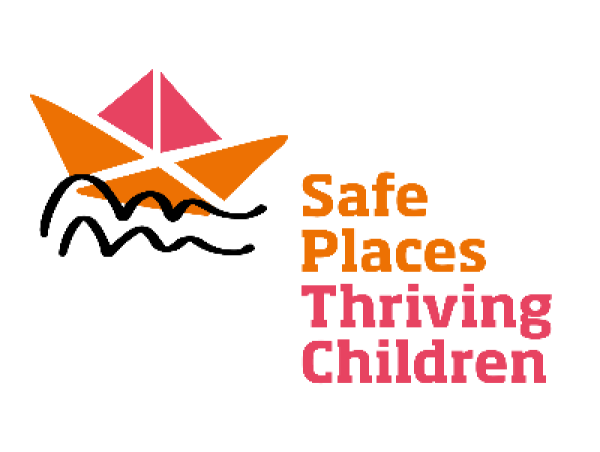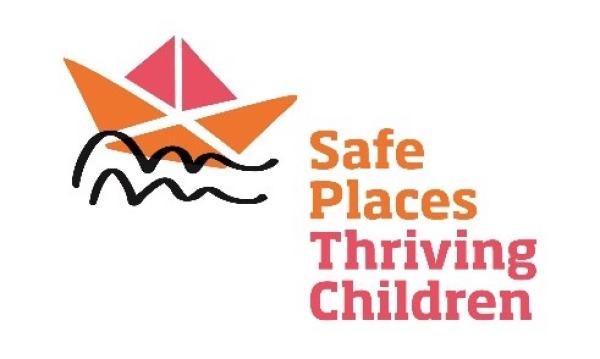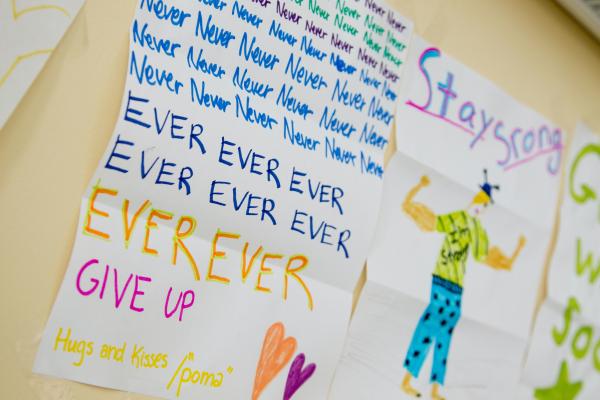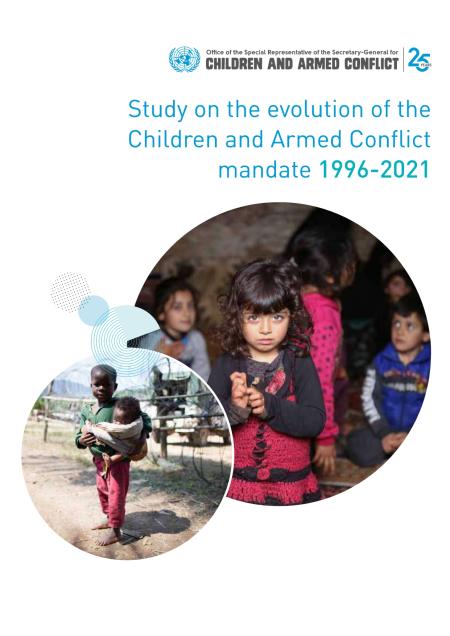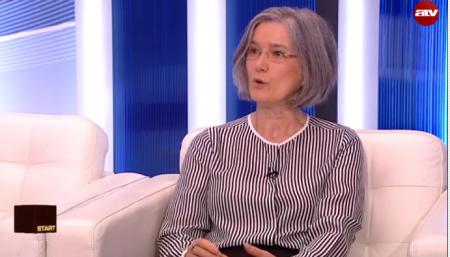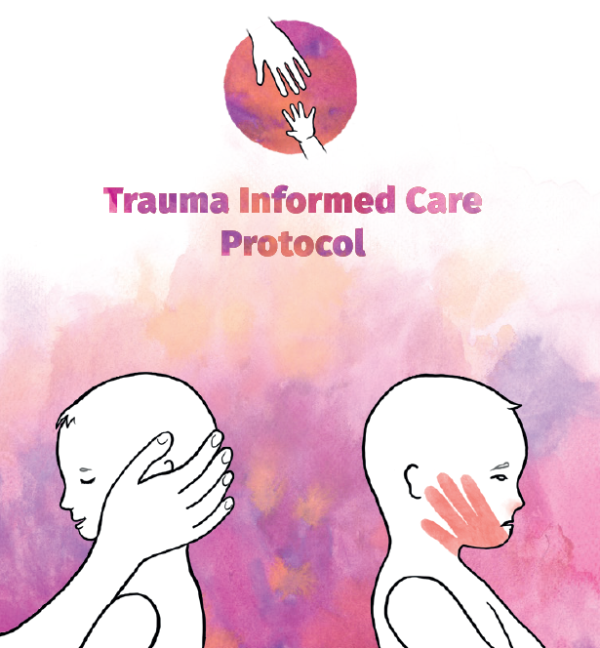Find out what trauma-informed care means in our everyday lives, why it is important and how it is reflected in the work of Terre des hommes' Emergency Response Programme in collaboration with the Trauma Centre.We talked to Júlia Richter, the professional manager of the Trauma Centre, Anikó Horváth and Andrea Nánási, crisis counselling psychologists, and Dóra Varga-Sabján, Terre des hommes' expert in coordinating professional work.
"Trauma-informed care does not mean that everyone needs to know what happened to the person concerned, but based on the assumption that anyone can be a trauma survivor, we pay increased attention to ensure that we create a safe, supportive, accepting and predictable environment in many ways", answers Júlia Richter to our question about one of the basic frameworks of this professional approach. "We believe that trauma-informed care is important in our approach, which is about approaching each service user in such a way that even if they are a trauma survivor, they can still access/use/support the help we can provide."
The importance of the need for a safe environment, a predictable framework, is very often raised in relation to trauma-informed care. What is the reason for this, why is it important to make it a priority for people who have experienced trauma and the emotional, psychological and physical impact it has on them?
Julia R.: For all trauma survivors, but even more so for refugees, creating a sense of safety is of paramount importance. This means physical safety, emotional safety, adequate information about their options and an accepting attitude in case of possible emotional reactions that may be difficult for others to understand. Trauma can change someone's behaviour, making them more withdrawn, suspicious or aggressive. In many cases, extreme stress can also lead to changes in thinking and concentration, so it is also important to pay attention to how well the person can process the information at the time, whether it is worth telling them in a different form or repeatedly. The sooner they feel safe, the less likely they are to develop post-traumatic symptoms later on.
V-S. Dóra. In a traumatic situation, emotional and behavioural reactions may develop which are appropriate in the given situation, but later become more of an obstacle - think of the veteran who, years after the war, is still frightened or even flees when he hears the sound of sirens, even though this makes his daily life in the city that is his home much more difficult. By providing a safe, predictable environment, we also give traumatised people the opportunity to avoid having to constantly monitor their environment on standby, which is extremely stressful for the human body because of the constant activity of the stress response system.
What is the difference between the situation of adults and children who have experienced trauma? What special needs might children with trauma have when they come into care?
Julia R.: For children, too, safety is of paramount importance. They, depending on their age, but mostly through the reactions of parents and caregivers. During life-threatening, traumatic events, everyone is focused on survival. Less attention is paid to children's needs, to talking through their fears, to processing their experiences. This often leaves children alone with their experiences, and the missing elements for making sense of the situation are filled in with different elements from the world of fantasy, which unfortunately is often more stressful than reality. Fear can also lead to changes in their behaviour. They may show emotional reactions they are not used to and often experience a temporary stagnation or setback in development. Separation from caregivers may be more difficult than usual, as the basic sense of security is shaken and trust that the loved one will return is lost. In the case of Ukrainian refugee children, separation from fathers and other loved ones, and the difficulty of maintaining contact, also creates an emotionally stressful situation.
This is true even if a family has not experienced a direct threat to their lives, but has chosen to leave in order to avoid the risk of such a threat and for their own safety. Sudden change can fundamentally upset a child, and this can be compounded by fear, possible grief and uncertainty about how long this temporary, transitional situation will last.
Andrea N.: Most families see their stay as a temporary solution: they want to go home as soon as possible. Their property, their animals are waiting for them at home - in the place they are attached to. This sense of transience makes it difficult to structure their goals and therefore their time in the medium term, and most of them can live and think from now until tomorrow. This, among other things, makes it difficult to arouse and maintain motivation.
In many cases, parents are reluctant to take their children to a community (school, nursery school) because of their own lack of purpose, preferring to play the role of carer themselves. Young mothers work more remotely, so grandmothers look after the grandchildren and tend to keep the children with them because they are overworked.
Sometimes there is also a sense of tension arising from forced closeness, which often comes to the surface during activities and play with the children: tension is expressed through play.
How can trauma-informed care respond to this? What are coping strategies, what are their realistic goals in peacetime and crisis care?
Aniko H.: In addition to creating safety, stability and predictability, strengthening existing resources, for example by building on the cohesiveness and supportive power of the community, by organizing group discussions and community programmes, also helps a lot in supporting coping and working through trauma. Maintaining familiar daily activities and routines, such as going to school, cooking, shopping together, helps to regain a sense of self-efficacy, for both children and adults.
V-S. Dora. This feeling can become overwhelming and can take over all aspects of life later on. Therefore, it is very important to experience again and again in a safe, supportive environment that we have the possibility and ability to make choices, to have an impact on what happens to us. This is what normality would mean: the natural, everyday order of our lives in which we do not have to be on constant alert and expect overwhelming, uncontrollable experiences. The more we can live our own effectiveness in times of peace, the more resilience we can develop in times of crisis, and the more coping strategies we will have to deal with the difficult, overwhelming experiences that arise in such situations.
As a psychologist and professional, what are some of the challenges faced by those helping refugee children? How is it possible to understand, solve and deal with them?
Andrea N.: Psychoeducation is particularly important because families have little knowledge/experience, coping strategies for psychological problems and stress in general. It is important to increase parents' knowledge about the care and education of children, including their physical and emotional needs. This can be done through individual consultations and group sessions. One of the biggest challenges for us as facilitators is conflict management, developing and strengthening coping strategies (current and long-term).
V-S. Dóra: One of the biggest challenges is the constant and increased stress situation that refugee families living here have to face every day - having to leave their homes, which was not their choice, and having to cope outside their comfort zone, in a new situation, in a new environment, with new expectations, which is not easy at all. This can be compounded by the fact that their family members and loved ones may be in constant danger at home, or may have already been lost. These are facts that cannot be changed. The more secure they can feel, the more predictable what happens to them and the more positive experiences they can have in a number of situations, the more we can reduce the burden on them and accompany them on this difficult journey.


